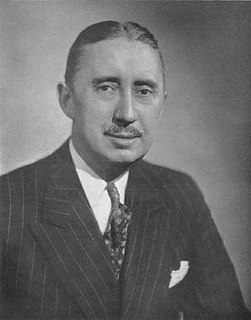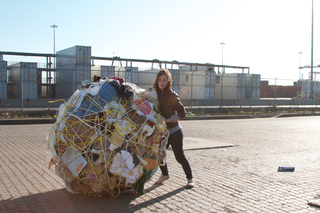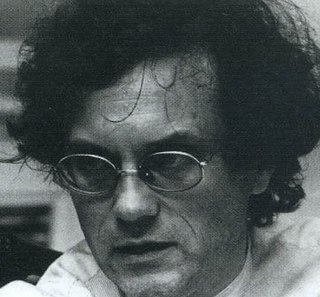Top 1200 Mass Production Quotes & Sayings
Explore popular Mass Production quotes.
Last updated on November 24, 2024.
As mass production has to be accompanied by mass consumption, mass consumption, in turn, implies a distribution of wealth ... to provide men with buying power. ... Instead of achieving that kind of distribution, a giant suction pump had by 1929-30 drawn into a few hands an increasing portion of currently produced wealth. ... The other fellows could stay in the game only by borrowing. When their credit ran out, the game stopped.
In 1905, when you went motoring, you took your mechanic. Twenty-five years later, mass production revolutionized the role of the automobile, but buying a Ford wouldn't have made sense if everyone still needed a mechanic on board. In 1955, when you used your computer, you took your programmer. Twenty-five years later, mass production revolutionized the role of the computer, but buying a micro wouldn't have made sense if everyone still needed a programmer.
Both for the production on a mass scale of this communist consciousness, and for the success of the cause itself, the alteration of men on a mass scale is necessary, an alteration which can only take place in a practical movement, a revolution; this revolution is necessary, therefore, not only because the ruling class cannot be overthrown in any other way, but also because the class overthrowing it can only in a revolution succeed in ridding itself of all the muck of ages and become fitted to found society anew.
When the mass of men are dispossessed - own nothing - they become wholly dependent upon the owners; and when those owners are in active competition to lower the cost of production the mass of men whom they exploit not only lack the power to order their own lives, but suffer from want and insecurity as well.
The capitalist engine is first and last an engine of mass production which unavoidably also means production for the masses. . . . It is the cheap cloth, the cheap cotton and rayon fabric, boots, motorcars and so on that are the typical achievements of capitalist production, and not as a rule improvements that would mean much to the rich man. Queen Elizabeth owned silk stockings. The capitalist achievement does not typically consist in providing more silk stockings for queens but in bringing them within reach of factory girls.
We cannot live without trade. A society can neither advance nor improve without excess of disposable income. This excess can only be amassed through the production of goods and services necessary or attractive to the mass. A financial system which allows this leads to inequality; one that does not leads to mass starvation.
Strictly speaking, the mass, as a psychological fact, can be defined without waiting for individuals to appear in mass formation. In the presence of one individual we can decide whether he is "mass" or not. The mass is all that which sets no value on itself good or ill based on specific grounds, but which feels itself "just like everybody," and nevertheless is not concerned about it; is, in fact, quite happy to feel itself as one with everybody else.
Joblessness is a weapon of mass destruction. Poverty is a weapon of mass destruction. Hunger is a weapon of mass destruction. Poor health care is a weapon of mass destruction. Poor education is a weapon of mass destruction. Discrimination is a weapon of mass destruction. Let us abolish such weapons of mass destruction here at home.
Poverty is a weapon of mass destruction. Joblessness is a weapon of mass destruction, homelessness, a weapon of mass destruction... racism, a weapon of mass destruction, fear, a weapon of mass destruction. We must disarm these weapons and renew our commitment to quality public schools and dedicated teachers and good housing and quality health care and decent jobs and stronger neighborhoods.
Mass production is only profitable if its rhythm can be maintained.. that is, if it can continue to sell its product in steady or increasing quantity. The result is that while, under the handicraft or small-unit system of production that was typical a century ago, demand created the supply, today supply must actively seek to create its corresponding demand.
The Second Wave Society is industrial and based on mass production, mass distribution, mass consumption, mass education, mass media, mass recreation, mass entertainment, and weapons of mass destruction. You combine those things with standardization, centralization, concentration, and synchronization, and you wind up with a style of organization we call bureaucracy.
Production for the sake of production - the obsession with the rate of growth, whether in the capitalist market or in planned economies - leads to monstrous absurdities. The only acceptable finality of human activity is the production of a subjectivity that is auto-enriching its relation to the world in a continuous fashion.





















































